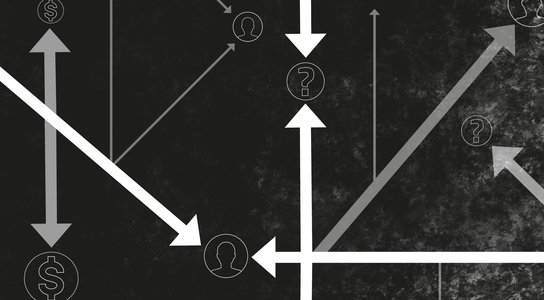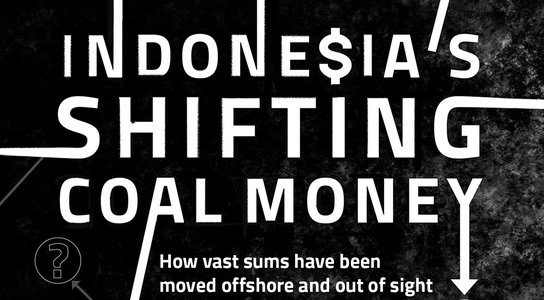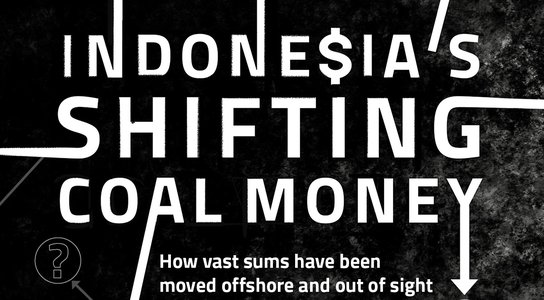- New report links Sandiaga Uno to payments of at least US$43million from a major Indonesian coal company, Berau Coal, into an obscure offshore firm in the Seychelles.
- It concludes Uno had a hand in the payments and may have personally benefited from them in some way.
- These payments, along with a number of other questionable transactions linked to Uno’s business partner, Rosan Roeslani, contributed to Berau Coal defaulting on its debts.
- It highlights a new risk posed to those financing and investing in Indonesian coal companies: how they might lose their money, as well as their reputation.
- Global Witness also releases briefing on how major Indonesian senior public official Luhut Pandjaitan’s sale of his coal company to hidden owners leaves unanswered questions.
Tuesday 2 April 2019 – A new report by NGO Global Witness has revealed how Vice-Presidential candidate Sandiaga Uno had a hand in payments of at least US$43 million from a major Indonesian coal company to an obscure offshore firm, and that he may have secretly benefited from these payments in some way.
The news comes just weeks before Indonesia’s national election, raising issues of grave public concern about the former business dealings of an influential politician.
This report reveals how a company Sandiaga Uno co-owned, took over a major coal company, Berau Coal, which then agreed to make large payments in advisory fees to an obscure offshore company, Velodrome Worldwide Ltd.
It details how at least US$43 million of questionable payments then flowed from Berau Coal to Velodrome between 2010 and 2012.
It also reveals how Uno must have known about the payments, because they were based on an agreement made when he was in an influential position at Berau Coal, and continued when he was a board commissioner with oversight of Berau’s directors.
Moreover, he may have had an interest in Velodrome and secretly
benefited from the payments in some way. He had previously owned Velodrome and a
long-term associate who was working for him in several other offshore companies
is Velodrome’s last known owner.
What’s more, these were not the only questionable payments made by Berau Coal. A number of other questionable transactions
were linked to Sandiaga Uno’s business partner, Rosan Roeslani.
Together these outflows weakened the finances of Berau Coal,
contributing to it defaulting on hundreds of millions dollars in debt, with an
adverse impact on other investors in the company.
Globally, coal is fast becoming high-risk and high-cost for those providing
financial and political support to it.
But within Indonesia it is increasingly controversial due to air pollution, water and land contamination and recent corruption scandals.
This briefing provides a further cautionary tale for the banks and investors still considering financing Indonesian coal: they could lose their money as well as their reputation.
Global Witness has also released a second briefing focusing on unanswered questions about a former business deal of the government minister Luhut Pandjaitan.
This outlines the sale of Pandjaitan’s coal company Toba Bara Sejahtra, for an undisclosed amount, to an unknown buyer.
These two facts raises questions of public concern, at a time when he is a senior member of the government. They touch on the issue of politicians’ ownership of companies, which has become a live subject of debate in the election campaign.
Stuart McWilliam, Climate Campaign Leader, Global Witness said:
“Uno may no longer be a businessman. But as a man running for one of the highest public offices in Indonesia, he should be gravely concerned with addressing these matters. Yet, he has not provided a credible account of his part in the payments to Velodrome, and when given the opportunity to comment, he did not do so.
“Foreign lenders and investors have enabled the Indonesian coal industry to keep going, despite its well-known association with climate change, deadly air pollution, water and land pollution and recent corruption scandals.”
“These findings offer yet another potent reason why banks and investors should shun Indonesia’s Big Coal, and why politicians should withdraw their support for the significant expansion of coal-fired power in Indonesia.”/ ENDS
Contacts
Notes to editor:
- Interviews: Are available on request. Please contact Heather Iqbal on [email protected]
- Video content: B-Roll can found here.
- The briefing on Berau Coal is released amid a backdrop of corruption cases and corruption allegations in the Indonesian coal industry, including the ongoing Riau-1 power plant scandal and revelations in recent years that major power companies Marubeni and Alstom bribed MPs to secure a power plant expansion contract. This briefing has highlighted different, previously unrevealed risks. These findings should ring alarm bells for the banks still considering financing Indonesian coal-fired power stations, which present a high level or risk given the huge level of capital required to build and operate them, as well as other investors.
- Moving away from coal is part of a global financial trend. Aside from the concerns that Global Witness have raised in this report, there is an accelerating withdrawal from funding coal. In February 2019, the Institute for Energy Economics and Financial Analysis published research showing that global capital is ‘fleeing the coal sector at an alarming rate’, with over 100 global financial institutions exiting coal, and banks, insurers or lenders announcing new restrictions on average every two weeks.
- About Global Witness: Global Witness investigates and campaigns to change the system by exposing the economic networks behind conflict, corruption and environmental destruction.
You might also like
-
Campaign Hub Indonesia's Shifting Coal Money
We already know coal is terrible for the environment, but our investigations into the Indonesian coal industry highlight a host of other risks
-
Briefing Indonesia's shifting coal money 1: Sandiaga Uno and the offshore dealings of Berau Coal
One of Indonesia’s best-known politicians may have benefited from payments to an obscure offshore firm by one of the country’s largest coal companies.
-
Briefing Indonesia’s shifting coal money 2: Luhut Pandjaitan and the hidden buyers
The recent sale of a coal company by one of Indonesia’s best-known public officials has left unanswered questions which are an important matter of public interest.